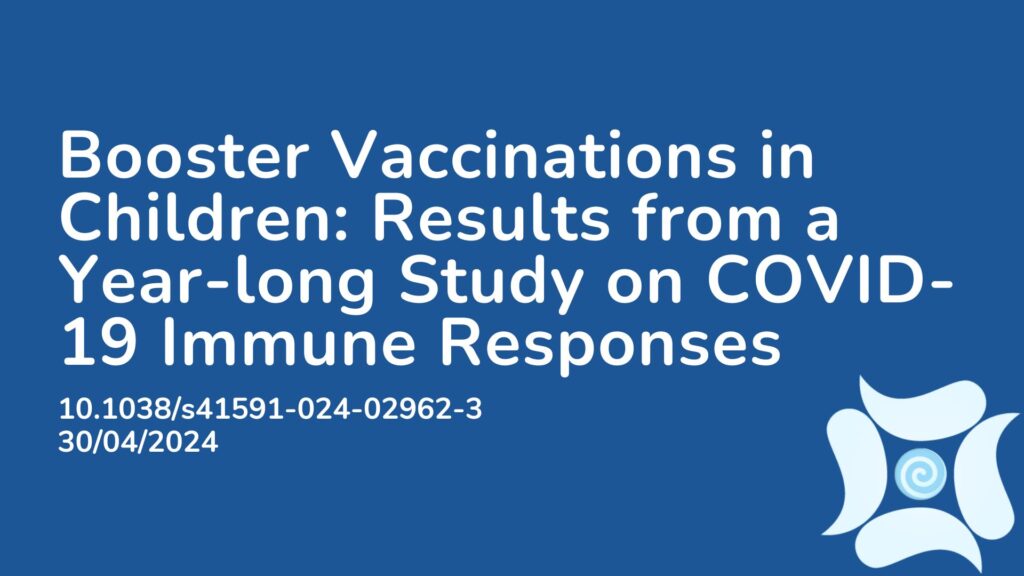Summary:
COVID-19 vaccination boosters are still being recommended globally, particularly for children. This paper examines the effectiveness of booster vaccinations in a cohort of children aged 5-12 years. Researchers followed 110 children for one year and studied the longevity of immune responses post-mRNA vaccination against COVID-19. They analyzed SARS-CoV-2 antibody levels, memory B cells, and T cells, as these are essential for immune defense and produce antibodies that defend against foreign invaders. The study investigated how different combinations of infection and vaccination contributed to immunity against COVID-19. The findings indicated that a third vaccine dose boosted antibody levels in children but did not affect B cell memory or T cell responses, which are crucial predictors of immune defense and protection against SARS-CoV-2 infection. These results raise questions about current pediatric vaccination guidelines and warrant further research to determine if the risks outweigh the benefits of this vaccination.
Abstract:
The paucity of information on longevity of vaccine-induced immune responses and uncertainty of the correlates of protection hinder the development of evidence-based COVID-19 vaccination policies for new birth cohorts. Here, to address these knowledge gaps, we conducted a cohort study of healthy 5–12-year-olds vaccinated with BNT162b2. We serially measured binding and neutralizing antibody titers (nAbs), spike-specific memory B cell (MBC) and spike-reactive T cell responses over 1 year. We found that children mounted antibody, MBC and T cell responses after two doses of BNT162b2, with higher antibody and T cell responses than adults 6 months after vaccination. A booster (third) dose only improved antibody titers without impacting MBC and T cell responses. Among children with hybrid immunity, nAbs and T cell responses were highest in those infected after two vaccine doses. Binding IgG titers, MBC and T cell responses were predictive, with T cells being the most important predictor of protection against symptomatic infection before hybrid immunity; nAbs only correlated with protection after hybrid immunity. The stable MBC and T cell responses over time suggest sustained protection against symptomatic SARS-CoV-2 infection, even when nAbs wane. Booster vaccinations do not confer additional immunological protection to healthy children.
Article Publication Date: 30/04/2024
DOI: 10.1038/s41591-024-02962-3




